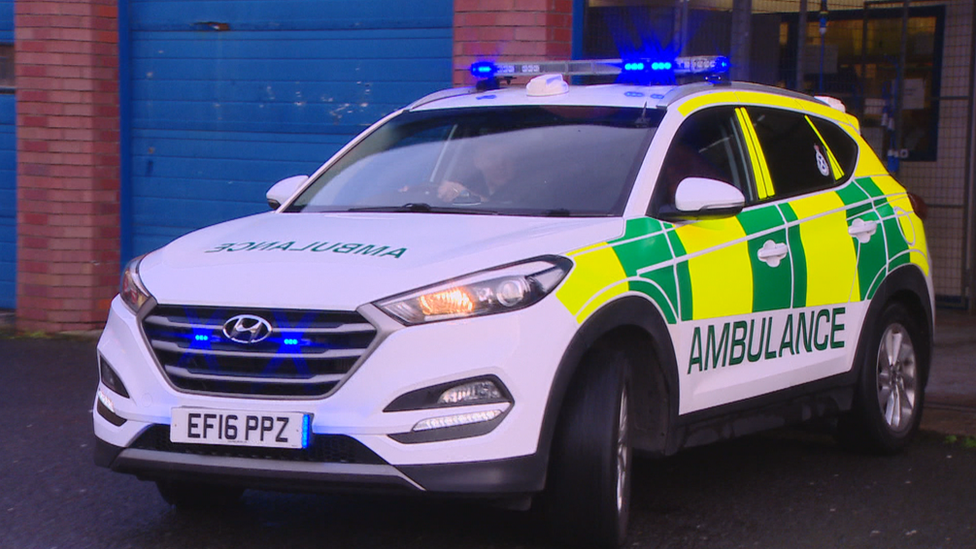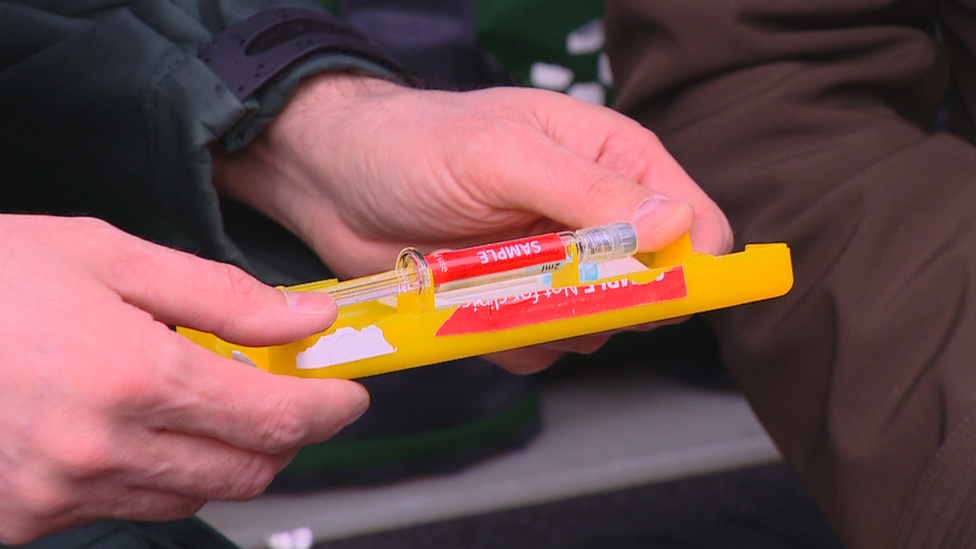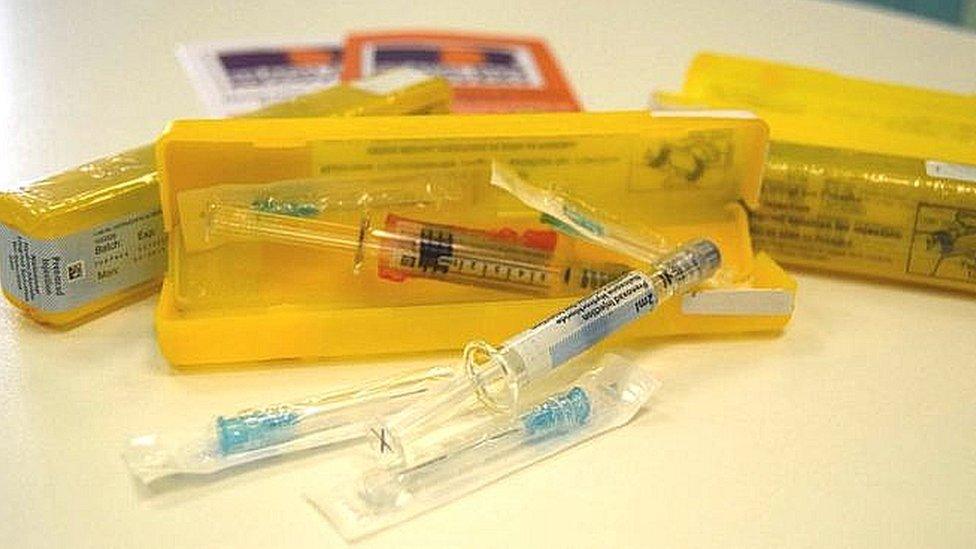Addicts' families to be trained in anti-overdose drug
- Published

In 2019, paramedics in Scotland used more than 5,000 doses of Naloxone to reverse the effects of drug overdoses
The families of heroin users who are at risk of fatal overdoses are to be trained to use life-saving Naloxone kits by ambulance crews in Glasgow.
It is part of a pilot scheme funded by the Scottish government taskforce set up last year to tackle the rising number of drug deaths.
Naloxone kits are already widely available in communities, with about 46,000 supplied between 2011 and 2018.
The drug works by temporarily reversing the effects of opioid overdoses.
Last year paramedics in Scotland used more than 5,000 doses of Naloxone, the Scottish Ambulance Service said.
Despite this, 537 people died from overdoses of heroin and morphine in 2018.
Paramedics in Glasgow will now carry out on-the-spot training on how to use Naloxone before they leave the scene of an opiate overdose.
Glasgow paramedic Gary Rutherford told BBC Scotland: "The ambulance service will always respond. These are high priority calls to us.
"But if we can have these kits out in the community, that will save some minutes."

Paramedics can train people in the use of the kits
Naloxone is an intra-muscular injection, meaning it can be injected straight into a person's arm or leg.
The single injection of the antidote works by disabling the opiate receptors in the body, blocking the effects of the opiate drugs taken.
Drugs such as morphine and heroin are considered opioids.
In 2010, Scotland became first country in the world to introduce a national Naloxone programme.
The programme is centrally co-ordinated and funded by the Scottish government, and administered locally by the Scottish Drugs Forum, alcohol and drug partnerships and health boards.
- Published25 October 2016
